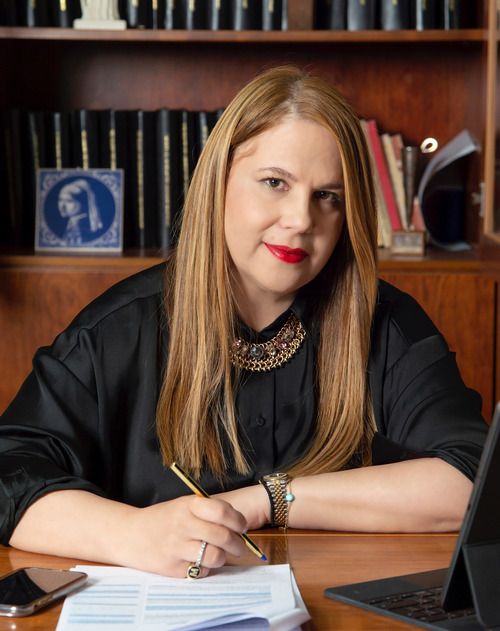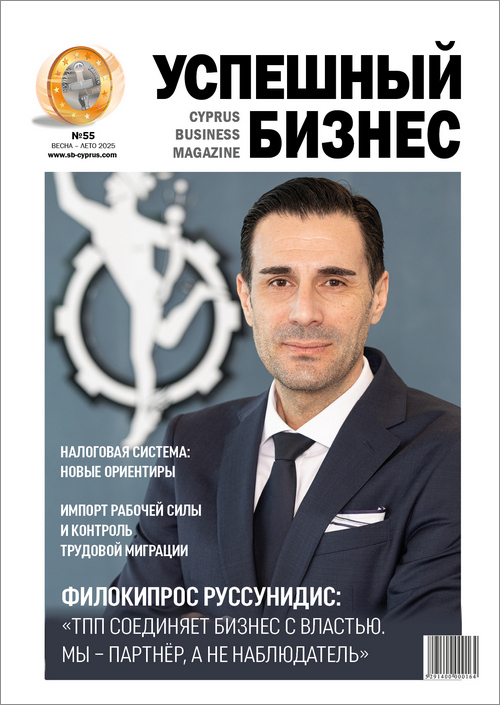
The institution of the Commissioner of Administration was introduced 30 years ago. How have the duties and priorities of the Commissioner changed since then?
Indeed, it was established in 1991 with the main competence to examine individual complaints regarding decisions or actions taken by public authorities as to whether these decisions or actions violate the provisions of law, human rights of the complainants, or principles of good administration and proper behaviour. Since then additional competencies have been assigned to our institution. Specifically, since 2004, with Cyprus accession to the EU, the Commissioner’s competence has been extended to act as the country’s Equality Body with the responsibility to combat discrimination in Cyprus.
With accreditation by the UN in 2015, our mandate was extended as National Human Rights Institution, to include human rights monitoring, protection, and respect in Cyprus. Furthermore, we also act as the National Preventive Mechanism Against Torture (NPM) under OPCAT, as Independent Mechanism for the Promotion, Protection, and Monitoring of the U.N. Convention for the Rights of Persons with Disabilities, and as a Mechanism for Monitoring Forced Return Procedures of migrants. All these competencies exist in parallel with the main core ombudsman institution since 1991.
You can help people in cases of discrimination in the public and private sector, for example, by imposing a fine. Could you give some examples of such work?
Imposing a fine would always be the last choice. We start with interventions, recommendations, suggestions. If the private or public sector or a competent authority doesn’t follow our suggestions, then we resort to fines. Our interventions often have good outcomes. We have several interventions regarding discrimination based on race, religion, sexual orientation, disability, gender.
I can refer to the one we drafted in March 2020, after an investigation regarding the racial discrimination of a football player who was verbally abused during a football match by the players of the opposing team and other people at the stadium. We stressed in the report the responsibility of the State to apply preventive and combative measures with respect to racial incidents and to protect victims of such incidents. Relevant recommendations were submitted to the police and the Cyprus Football Association.
Another incident happened in October 2019, when a video went viral with three Cypriot women racially assaulting a Russian woman, a permanent resident of Cyprus, based on her ethnic background. We made a public statement about the incident, in which we strongly condemned the verbal assault against the victim. We also corresponded about the case with the Chief of Police pointing to the need to investigate this case as a hate crime. Finally, we were informed that the police had examined the case under the supervision of the specialised police office against discrimination and the perpetrators were prosecuted under the law, which provides for combating certain forms and expressions of racism and xenophobia by means of criminal law. The three Cypriot women were fined.
As a protector of human rights in general, we know that recently you have received complaints regarding restrictions on people’s rights of education, free movement, and avoidance of body interventions. How do you handle such requests?
I assume you are referring to the various measures taken by the State to control the spread of the pandemic. These issues are very complex. From the human rights perspective, we have to balance the restrictions of personal freedoms like the freedom of movement. On the other hand, there are the fundamental right to health and the resulting obligation of the State to safeguard public health. We need to balance these two. Having received many complaints against measures taken during the pandemic, we approach them to assess whether the measures taken are legally based, time-limited, proportionate, and non-discriminatory.
We put special emphasis on the protection of the rights of people in situations of vulnerability, especially during the pandemic. For example, we made interventions for the protection of maternity rights during the pandemic with positive outcomes, for the return of children with disabilities to school after the easing of the Covid-19 measures, for implementations of measures aimed at older people in psychiatric hospitals for patients and staff. Other examples include interventions for granting special permits to enter Cyprus to people who are in long-term relationships with Cypriot citizens or permanent residents of Cyprus – with positive outcomes as well; interventions regarding the living conditions of asylum seekers including measures or lack of measures intended to protect them from Covid-19. We were also intervening on the matters of unpaid social benefits.
Is there any specific procedure to contact your organisation?
We have an open door policy. There is no formal procedure to file a complaint, only a written submission is needed. It can be sent via email, fax, post, or even social media. For example, I am receiving many complaints via email. Under normal circumstances the public can visit our office during working hours. Anyone can contact the office by phone and receive information on how to submit a complaint.
In your opinion, what are the most important activities of the National Human Rights Institution?
As I said earlier, the competence as a National Human Rights Institution is to make systematic interventions and take actions for the human rights promotion, protection, and respect in Cyprus. We regularly make such interventions and submit specific recommendations to relevant public authorities on how to improve their policies, the institutional framework in which they operate, to ensure the protection of human rights for all people living in Cyprus.
One such important intervention is the systematic report we did in 2019 and 2020 in relation to the domestic work framework in Cyprus. We highlighted the main problems that domestic workers face because they are accommodated by and therefore highly dependent on their employers. Also worth mentioning are our recent interventions regarding the respect for religious freedom and cultural heritage, the living conditions in the two reception centres for asylum seekers in Kofinou and Kokkinotrimithia and those of the Roma community in Cyprus.
Apart from preparing written recommendations on systemic issues we also regularly engage in promoting a culture of respect for human rights in Cyprus and cooperate with the Cyprus Police Academy. Officers of our institution give lectures, provide recommendations and presentations to police officers about their obligation to respect and protect human rights of all citizens without discrimination.
The office receives approximately 2,500 complaints a year and in many cases a positive outcome is reached. For example, our interventions related to delays in the issuance of residence permits or of social benefits frequently lead to positive resolution.
In Cyprus there is a large Russian-speaking community, is there anything you would like to say to these people?
To the Russian-speaking citizens and residents of Cyprus I would like to express my readiness to examine any issues or problems they face that fall within my competencies. I also want to reassure them that our institutions are always ready to assist them and enjoy their rights. I am here to hear and give voice to the voiceless. I am here for every person who resides on this land.
Maria Stylianou-Lottides
Commissioner for Administration and the Protection of Human Rights (Ombudswoman)
Ms Stylianou-Lottides holds a Law Degree from the National and Kapodistrian University of Athens and graduated at European Union Law from the Leicester University (LLM). She is a member of the Cyprus Bar Association and part of many professional organisations in her capacity as Ombudswoman.
Basic Core of the Commissioner for Administration and Protection of Human Rights
• Sector of human rights
• Sector of local government, property, development, and environment
• Sector of financial issues
• Public health sector
• Sector of social benefits
• Sector of education, training, and employee relations
• State-citizen relations sector
Ombudsman Office
2 Diagorou Str., 1097 Nicosia Cyprus
Tel.: +357 22 405501, 22 405556
Fax: +357 22 672881
www.ombudsman.gov.cy
ombudsman@ombudsman.gov.cy






